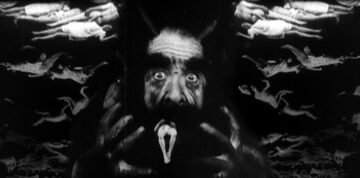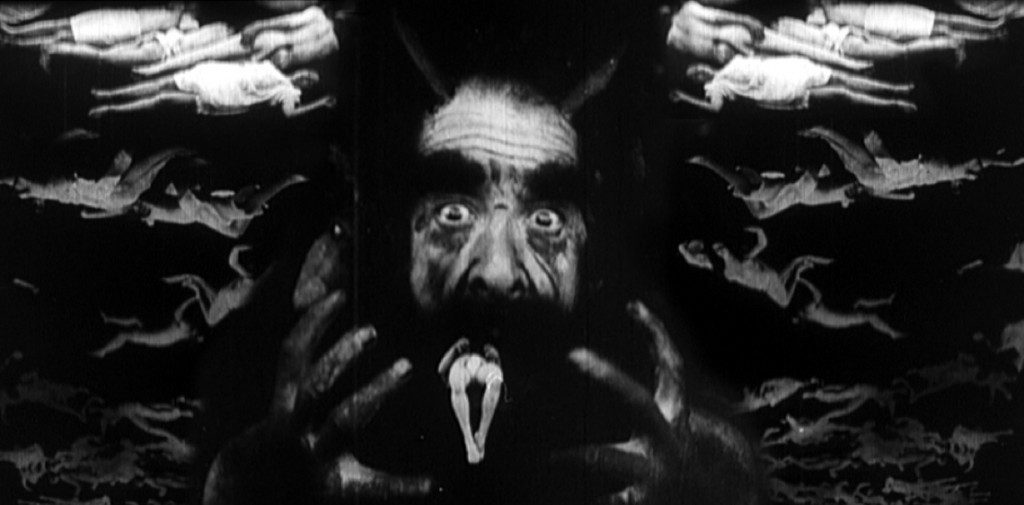Watch L’Inferno (1911), Italy’s First Feature Film and Perhaps the Finest Adaptation of Dante’s Classic


In its second decade, cinema struggled to evolve. The first films by the Lumière Brothers and Thomas Edison were short and gimmicky – shots of trains racing towards the screen, couples kissing and cute kittens getting fed. A quick rush. A bit of fun. Its creators didn’t see much past the novelty of cinema but then other filmmakers like Georges Méliès, Edwin S Porter, Alice Guy-Blaché and D.W. Griffith started injecting this new medium with elements of story. It started aspiring towards art.
To this end, filmmakers started to expand the canvas on which they created. Films that were just two to eight minutes lengthened in duration as their stories grew in complexity. The first feature-length movie came in 1906 with the Australian movie The Story of the Kelly Gang.
In 1915, D.W. Griffith premiered his racist drama The Birth of a Nation, which crystallized film language and proved that longer movies could be financially successful. In between those two movies came L’Inferno (1911) – perhaps the finest cinematic adaptation of Dante’s Inferno out there and the first feature-length Italian movie ever.
Like Griffith, the makers of L’Inferno – Francesco Bertolini, Adolfo Padovan and Giuseppe de Liguoro – sought to raise cinema to the ranks of literature and theater. Unlike Griffith, they didn’t really do much to forward the language of cinema. Throughout L’Inferno, the camera remains wide and locked down like the proscenium of a stage. Instead, they focused their efforts on creating gloriously baroque sets and costumes. Much of the film looks like it was pulled straight from Gustave Dorè’s famed illustrations of The Divine Comedy. Yet seeing a picture in a book of a demon is one thing. Seeing it leap around lashing the naked backs of the damned is something else entirely. If you were ever tempted by the sin of simony, you’ll think twice after seeing this film.
L’Inferno — now added to our collection of 1,000+ Free Movies Online — became both a critical and commercial hit worldwide, raking in over $2 million (roughly $48 million in today’s money) in the US alone. “We have never seen anything more precious and fine than those pictures. Images of hell appear in all their greatness and power,” gushed famed Italian novelist and reporter Matilde Serao when the film came out.
American film critic for The Moving Picture World, W. Stephen Bush, was even more effusive:
“I know no higher commendation of the work than mention of the fact that the film-makers have been exceedingly faithful to the words of the poet. They have followed, in letter and in spirit, his conceptions. They have sat like docile scholars at the feet of the master, conscientiously and to the best of their ability obeying every suggestion for his genius, knowing no inspiration, except such as came from the fountainhead. Great indeed has been their reward. They have made Dante intelligible to the masses. The immortal work, whose beauties until now were accessible only to a small band of scholars, has now after a sleep of more than six centuries become the property of mankind.”
Of course, the film’s combination of ghoulishness and nudity made it ripe to be co-opted by shady producers who had less that lofty motives. Scenes from L’Inferno were cut into such exploitation flicks as Hell-O-Vision (1936) and Go Down, Death! (1944).
You can watch the full movie above. Be sure to watch to the end where Satan himself can be seen devouring Brutus and Cassius.
Related Content:
Gustave Doré’s Haunting Illustrations of Dante’s Divine Comedy
A Free Course on Dante’s Divine Comedy from Yale University
Why Should We Read Dante’s Divine Comedy? An Animated Video Makes the Case
What David Lynch Can Do With a 100-Year-Old Camera and 52 Seconds of Film
Jonathan Crow is a Los Angeles-based writer and filmmaker whose work has appeared in Yahoo!, The Hollywood Reporter, and other publications. You can follow him at @jonccrow.
Watch L’Inferno (1911), Italy’s First Feature Film and Perhaps the Finest Adaptation of Dante’s Classic is a post from: Open Culture. Follow us on Facebook and Twitter, or get our Daily Email. And don't miss our big collections of Free Online Courses, Free Online Movies, Free eBooks, Free Audio Books, Free Foreign Language Lessons, and MOOCs.
from Open Culture https://ift.tt/3dVHllP
via Ilumina


Comments
Post a Comment